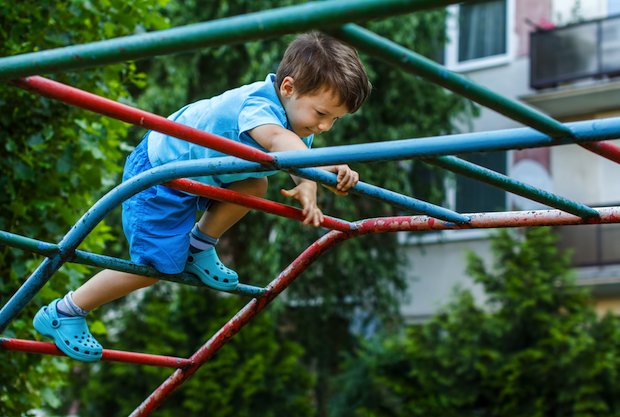When I was the parent of a toddler, I learned that transitions are hard.
Toddlers don’t have a clear sense of time, so hearing “the playdate will be over at noon” doesn’t necessarily help them prepare. They may not have much agency in their lives, so acceding to changes may feel like yet another place where they aren’t in control. And they don’t have the life experience to know that everything ends – so to them, every ending is a new heartbreak.
Now that my child has grown a few years older, I’m faced with a related lesson: Transitions are hard at any age. Even if we know they’re coming well in advance. Even if we typically perceive that we’re in control of our own lives. Even if, in theory, we know that everything ends and that we can always look forward to something new.
Pause to notice and sanctify every transition, every ending which is also a beginning.
Watching my son learn to navigate transitions has given me more compassion for myself as I navigate my own emotional landscape. I have more life experience than he does, so I should be able to face transitions with less anxiety and more grace. And frequently I do. But I also struggle with beginnings and endings. I think everyone does.
One season gives way to the next. Summer vacation gives way to school. On the Jewish calendar, we’ve just moved from an old year into a new one. All of these transitions come bearing gifts – as well as challenges. And if that’s true for annual transitions like the shift from summer to fall, how much more true it is for emotional transitions which may not follow any calendar or arise predictably. The illness of a pet, or of a family member. Facing mortality, or a marriage, or a divorce. Losing a job, or starting a job… All of these are transitions, and all may challenge our equilibrium and our sense of self.
Several years ago I learned a phrase from two of my teachers, the rabbis Marcia Prager and Shawn Zevit: “I love what comes, and I love what goes.” This mantra challenges me to be grateful for the gifts of every moment, and also to be willing to let those gifts go. Letting go can hurt, and I need to acknowledge that sense of loss… without letting my defense mechanisms take over.
Can I make a practice of welcoming whatever arises in my life with open arms – and then with equally open arms, letting it go when it’s time to transition to what’s next? Loving what comes and loving what goes requires equanimity. It requires that I not numb myself either to joy or sorrow. It also requires that I maintain awareness of the bigger picture, within which the joy and the sorrow, the coming and the going, are all contained.
I glimpse this when I make havdalah, the short Jewish ritual which ends Shabbat. I always feel sadness at havdalah, because a special time has ended. (This is why the tradition includes the scent of sweet spices – to revive us if we feel emotionally or spiritually “faint” at the departure of something beloved.) But the ritual ends on a note of hope for what might come next.
I can love both the coming of Shabbat and its going. I have to let it go in order to move into the new week, and though the Shabbat which has now ended will never return, there is another on the horizon. I can love that one when it comes and when it goes, too.
What would happen if I could pause to notice and sanctify every transition, every ending which is also a beginning? Might I be able to celebrate even difficult changes with greater equanimity, with a heart both open and at peace?

Since 2003, Rachel Barenblat has blogged as The Velveteen Rabbi. Ordained as a rabbi and spiritual director, she serves Congregation Beth Israel and is a founding builder at Bayit: Your Jewish Home. Her books of poetry include 70 faces: Torah poems (Phoenicia, 2011) and Texts to the Holy (Ben Yehuda, 2018).

